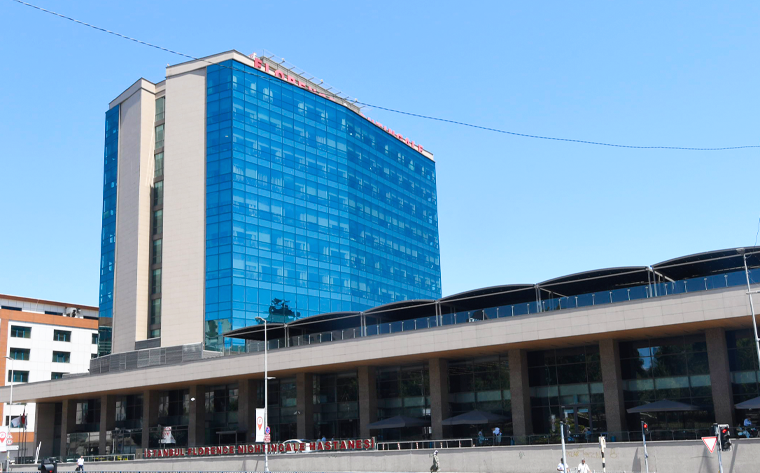
In the Perinatology Department, it is very important that premature birth can be detected and prevented in advance, that problems that may occur in multiple pregnancies can be diagnosed, and that the process can be managed in the most comprehensive way by keeping pregnancies under close monitoring, under the supervision of perinatology specialist physicians.
In addition, the Perinatology Department closely monitors the health of pregnant women and their babies; makes it possible to diagnose fetal abnormalities early, screen for chromosomal abnormalities, and prevent miscarriages and stillbirths.
Since 2009, many perinatological tests and applications such as detailed ultrasound, obstetric doppler ultrasound, fetal echocardiography, fetal nuchal translucency measurement have been successfully performed by perinatology specialist physicians and healthcare personnel at the Florence Nightingale Perinatology Department.
The perinatology and ultrasound service we provide is of high standards, informative and supported by consultancy services. Pictures and videos of the baby in the womb at different periods are given to the family.
Perinatology plays a critical role in the management of these diseases and conditions, as well as other complications that may arise during pregnancy, to ensure the best possible health for both mother and baby.
What Health Services Does Perinatology Provide?
Perinatologists provide a variety of services to protect the health of mother and baby during high-risk pregnancies. These services include:
- Detailed ultrasound examinations
- Fetal health assessments
- Amniocentesis and other invasive tests
- Management of diabetes and hypertension in pregnancy
- Birth planning and management
- Postpartum mother and baby follow-up
How is a Perinatology Examination Performed?
A perinatology examination usually begins with a detailed ultrasound examination. Ultrasound is used to assess the development and health of the fetus. In addition, blood tests, urine tests, and, if necessary, invasive tests such as amniocentesis may be performed, taking into account the mother's health. During the examination, the perinatologist evaluates the general health of the mother and baby and determines possible risks.
Who Should Consult Perinatology?
Expectant mothers should consult a perinatologist in the following cases:
- Those who have had complications in previous pregnancies
- Those with chronic diseases (diabetes, hypertension, etc.)
- Pregnancies over the age of 35
- Multiple pregnancies
- Those at risk of genetic diseases
- Those who developed complications during pregnancy
The Most Common Problems in Pre-Pregnancy Mothers
Various health problems that expectant mothers may encounter during the pre-pregnancy period can affect the pregnancy process and the baby's health. Therefore, early detection and management of these problems is of great importance. Here are the most common problems encountered during the pre-pregnancy period:
- Polycystic Ovary Syndrome (PCOS): PCOS is a condition that causes many small cysts to form on the ovaries, causing hormone imbalances. This syndrome can increase the risk of irregular menstrual cycles, infertility, and complications during pregnancy.
- Endometriosis: Endometriosis is a condition in which uterine tissue grows outside the uterus. This can lead to painful periods, infertility and pregnancy complications.
- Thyroid Diseases: Both hypothyroidism (low thyroid hormone) and hyperthyroidism (high thyroid hormone) can pose risks to both mother and baby during pregnancy. Controlling thyroid diseases is essential for a healthy pregnancy.
- Obesity: A high body mass index (BMI) increases the risk of diabetes, hypertension, and birth complications during pregnancy. Healthy weight management is essential before and during pregnancy.
- Diabetes: Both type 1 and type 2 diabetes need to be carefully monitored during pregnancy. Keeping blood sugar levels under control is critical to the health of mother and baby.
- Hypertension: High blood pressure that exists before pregnancy can lead to pregnancy complications such as preeclampsia. Blood pressure should be monitored and controlled regularly.
- Genetic Disease Carrier: Some genetic diseases may be more common in individuals with a family history. Learning whether or not expectant mothers and fathers carry these diseases through genetic testing plays an important role in the pregnancy process.
- Nutritional Deficiencies: Deficiencies in iron, folic acid, and other important nutrients can cause problems before and during pregnancy. A balanced and nutritious diet is essential for a healthy pregnancy.
- Psychological Problems: Anxiety, depression and other psychological problems can negatively affect the pregnancy process. Managing these problems before pregnancy is important for the health of both mother and baby.
- Age Factor: The risk of fertility and pregnancy complications increases in women aged 35 and over. Women planning a pregnancy at an advanced age should be closely monitored by perinatology specialists.
Perinatology is an important branch of medicine to prevent these problems from having negative effects on pregnancy and to protect mother and baby health. Perinatology specialists aim to provide the necessary medical support and care to expectant mothers in high-risk pregnancies and ensure that they have a healthy pregnancy.





